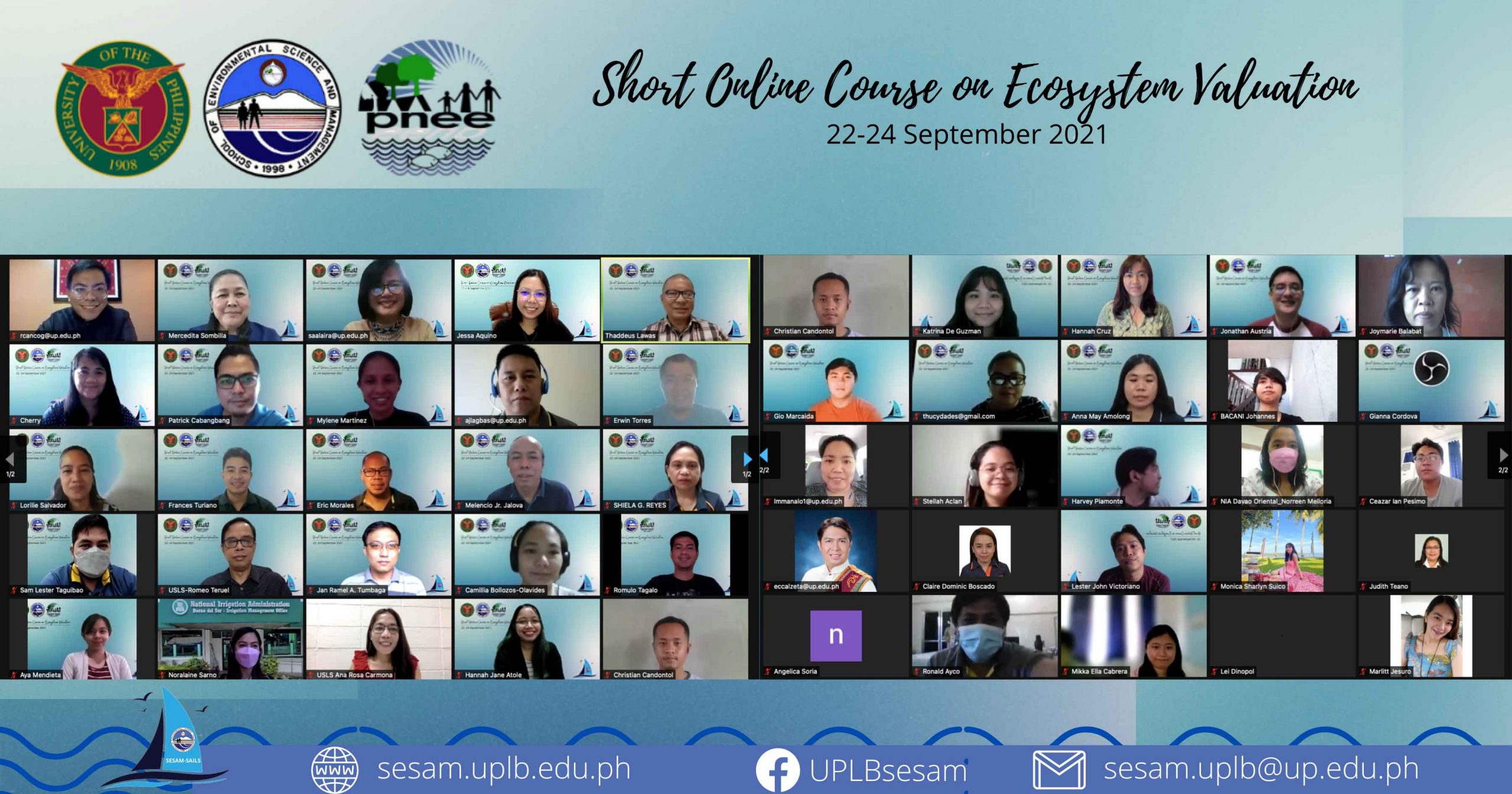
The University of the Philippines Los Baños-School of Environmental Science and Management (UPLB-SESAM), in collaboration with the Philippines Network of Educators for the Environment (PNEE) organized a Short Online Training Course on Ecosystems Valuation. This short course consists of three episodes and will run until September 24, 2021.
The objective of the training course is to assist concerned stakeholders to have an understanding on how to quantity and value ecosystem services. Specifically, it aims to capacitate and train attendees from various institutions in understanding and analyzing the flow and trend on ecosystem services, conduct a more comprehensive and holistic assessment for the quantification and valuation of ecosystem services, and use these information in improved decision-making.
The three-day training is expected to provide the participants: in-depth understanding on the concepts, theories, and processes underlying economic valuation of natural resources; ability to apply a range of science-based economic valuation tools and methods to quantify and monetize ecosystem services; and enhanced capacity to apply learnings in economic valuation to research projects and other fields where ecosystems valuation is necessary.
The event was graced by a message from Dr. Ramon M. Docto, President of the PNEE and Palawan State University. It was followed by the welcome remarks from Dr. Rico C. Ancog, Dean of UPLB-SESAM. “I hope that you will find ways on how your learnings here could be applied to your respective work”, Dr. Ancog told the participants.
Session 1 started by an Introduction to Basic Concepts on the Economics of Natural Resources by Dr. Mercedita A. Sombilla, Undersecretary of the Regional Development Group of the National Economic and Development Authority (NEDA). USec. Sombilla is also a member of the editorial board of The Journal of Environmental Science and Management.
Organized by the Continuing Education and Training Division of SESAM, 42 participants attended in this online course of professionals and students from the Academe, National Government Agencies, Private companies, and Local Government Units. (RM Areglado)

